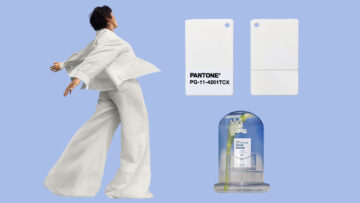
As the European Union rushes to define its reaction to intensifying US tariff threats, luxury group LVMH is performing a low-key but crucial role behind the scenes in diplomacy. As the July deadline approaches, the group has become a prominent voice amongst European industry leaders urging Brussels to adopt a softer stance in its high-stakes’ trade negotiations with Washington.
Sources indicate that LVMH, as well as other big firms, have been campaigning EU institutions and governments to pursue compromise rather than confrontation in the wake of US President Donald Trump’s threat to apply broad 50% tariffs on European products. With its success closely linked to American consumers, the luxury industry is calling for de-escalation to safeguard its transatlantic interests.
LVMH executives along with companies like Mercedes-Benz reportedly joined unofficial talks with US representatives, urging EU negotiators to temper their retaliatory position. The negotiations involved pleas to exempt iconic American goods like bourbon from any potential counter-tariff list.
For LVMH, the stakes are too high. Chairman Bernard Arnault has threatened that inaction to ease the trade standoff may hit France’s wine and spirits exports. Proposing a collaborative course, Bernard has even placed on the table the ambitious notion of a US–EU free trade area. Invoking his long-time relationships with Trump, Bernard is said to have visited Washington several times this year, with his son Alexandre joining efforts with American officials in recent months.
“I hope, with the limited resources and network I have, to assist Europe in taking the best possible constructive attitude,” Bernard explained to French lawmakers in May.
The luxury industry is not the only one looking to weigh in. Germany’s motor giants such as BMW, Mercedes-Benz and Volkswagen have also made overtures directly to US authorities. In a seemingly diplomatic move, Mercedes moved production of its GLC SUV to Alabama, while others had new American investment plans in place as part of an effort to thaw transatlantic relations.
But this corporate diplomacy has raised alarm in EU institutions. Brussels officials are concerned that over concessions could speed up the shift of European manufacturing and capital to the US, emptying the bloc’s industrial base.
Industry chiefs maintain that reciprocal tariffs may boomerang, hindering Europe’s access to critical American innovation networks and technologies—especially in areas such as fashion tech, AI and biotech.
Meanwhile, Cognac and Irish whiskey producers’ trade groups have mounted their lobbying efforts, insisting that they could be collateral damage in a controversy that does not particularly relate to their industries. With the US and China being key export markets, these producers are more vulnerable.
While the European Commission has threatened to retaliate against US $ 112 billion of American products, increasing pressure from member states and business lobbyists could lead up to US $ 82 billion of them being exempted—drastically weakening the EU’s bargaining position.
In a likely middle ground, Brussels is said to be contemplating a uniform flat 10% tariff on a wide variety of exports, while exempting lower rates for sensitive industries like aerospace, pharma, semiconductors and luxury goods.
As trade tensions head for a boiling point, the next few weeks will determine the future of economic EU-US relations. For LVMH and its competitors, the wish is that diplomatic restraint, rather than conflict, will leave the door to the US market firmly open.






